Editor – TMUNT – 3/10/2019
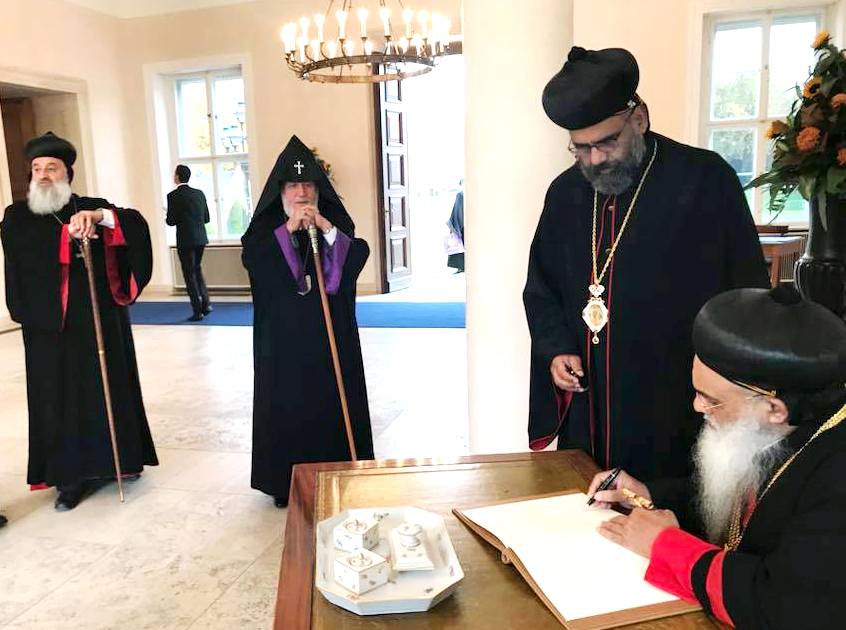
We have been reading a lot of blind accusations and criticisms on the ancient Malankara Church, especially in the light of her ongoing conflict with the Jacobite Patriarchal faction. Many people have been stating that the Indian Orthodox Malankara Church is not at all a part of the Oriental Orthodox(OO) communion. They bring out several reasons for their arguments as well. As per them, the Malankara Church has been excommunicated by the Syriac Orthodox Church of Antioch and All the East, hence she is not canonical. They claim that the Malankara Church is not an autocephalous Church. Moreover, she is not part of SCOOCH, a regional Oriental Orthodox conference in North America. Let us briefly examine the case of the Malankara Church and her relationship with the ancient Oriental Orthodox communion.
The Ancient Oriental Orthodox Communion
The Oriental Orthodox churches (Old Oriental Orthodox Churches) preserve the faith and teachings of the first three ecumenical councils namely Nicaea, Constantinople, and Ephesus.
Member Churches of the Oriental Orthodox Communion
The Churches who are members of the ancient Oriental Orthodox Churches – Coptic Orthodox Church of Alexandria – the Church of St. Mark the Evangelist (Dependent Church – the French Coptic Orthodox Church), the Syriac Orthodox Church of Antioch and All the East – the Church of St. Peter the Apostle (Dependent Church – Jacobite Syriac Church, Knanaya Syrian Church), the Armenian Apostolic Orthodox Church – the Church of St. Bartholomew the Apostle, St. Jude the Apostle and St. Gregory the Illuminator comprises of the Mother See of Holy Etchmiadzin, the Catholicosate of the Greater House of Cilicia and the two Autonomous regional Patriarchate of Jerusalem and Constantinople, the Indian Orthodox Malankara Church – the Church of St. Thomas the Apostle, the Ethiopian Orthodox Church – the Church of St. Philip the Deacon and Evangelist and St. Frumentius, and the Eritrean Orthodox Church –
the Church of St. Philip the Deacon and Evangelist
The Structure and Functioning of the Oriental Orthodox Communion
There is no definite structure for the Oriental Orthodox communion. Each local member Church is autocephalous and manages its own internal-external affairs. The Coptic Pope is considered first among equals. There is no global Pan-Oriental Secretariat to monitor the engagements of the OO Churches. There is no annual get together or meeting of the Oriental Orthodox primates nor their representatives. The only time the representatives and theologians of the Oriental Orthodox Churches gather is for the annual Oriental Orthodox-Roman Catholic dialogue. Apart from that, they take part in WCC and other ecumenical events.
Unity in Diversity
The beauty of Orthodox lies in Unity in Diversity. For example, the Armenian Apostolic Church uses unleavened bread (whereas the rest of the Churches use leavened bread) and the vestments and skull caps of their clergy are a bit different than that of the rest of the OO Churches. The diversity of the Armenian Church is fully accepted within the Oriental communion.
Autocephaly
The Ethiopian Orthodox Church gained her autocephaly in 1948 (agreement reached with the Coptic Church, the first Patriarch Abuna Abuna Basilios was consecrated in 1959). The autocephaly of the Ethiopian Church has nothing to with her origin and antiquity. Likewise, the Malankara Church received her Catholicate in 1912 and it has nothing to do with her origin and antiquity. The Eritrean Church gained her autocephaly from the Coptic Church in 1994. It is interesting to note that even though the Ethiopian Church harshly criticized the manner in which Coptic Church granted autocephaly to the Eritrean Church. However, the Ethiopian Church fully recognizes the autocephaly of the Eritrean Church and they remain in communion. The Ethiopian Church has also rejected the illegal deposition of the canonical Patriarch Abune Antonios of Eritrea.
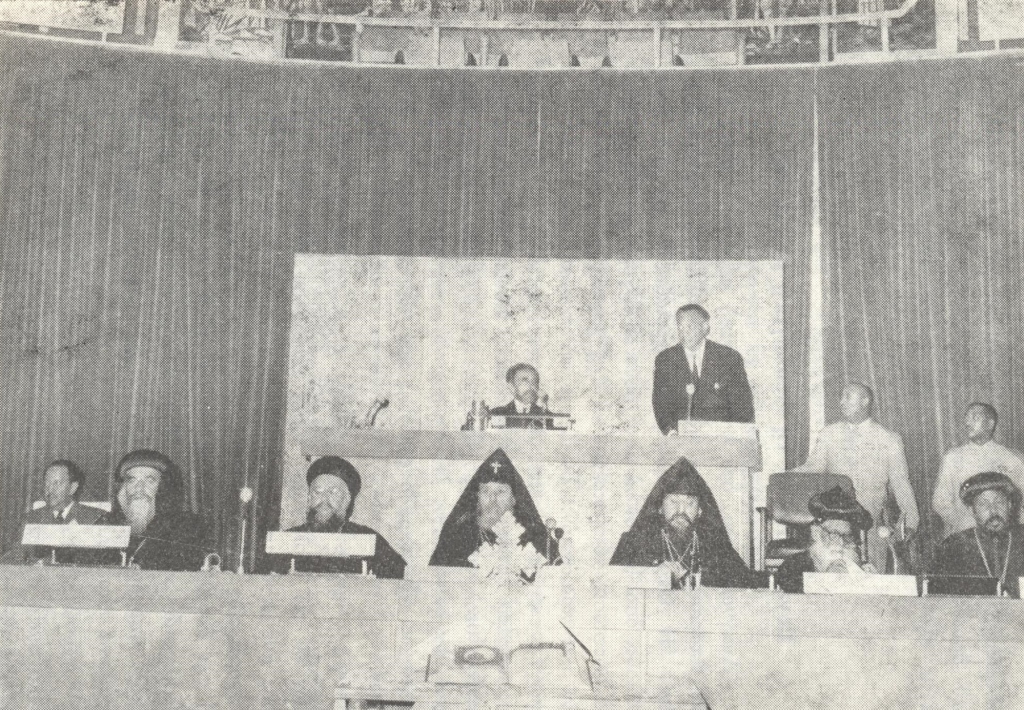
The Addis Ababa Conference and Catholicos Augen I
In the year 1965, all OF Primates came together on a common platform for the International Addis Ababa Conference (Pan-Oriental Orthodox). The Malankara Church was represented by the late lamented Catholicos Moran Mor Baselios Augen I of the East. He was given a cordial reception in Addis Ababa and was seated together with the primates of the Coptic, Syriac, Armenian and Ethiopian Churches (the Eritrean Church was not yet granted Autocephaly during the time). Please note that the Addis Ababa Conference took place before the mutual ‘excommunications’ between the Syriac and Indian Malankara Churches. A lot of decisions were taken during the Addis Ababa conference. Despite the follow-up sessions, none of the decisions were put into practice. Since 1965 there have been mutual visits (by the primates of the Churches) and pan-oriental exchange, but these were nothing similar to the Addis Ababa conference. Hence there is no common cannon or written rules for the Oriental Orthodox communion. The most important aspect is that the member churches confess the faith of the first three ecumenical councils.

Armenian Church Anniversary and Catholicos Baselios Mathews II
In 2001 the late lamented Catholicos Baselios Marthoma Mathews II of the East took part in the celebrations of 1700-Year Anniversary in Yerevan. The Malankara Church delegation took part in the celebrations with the rest of the Oriental Orthodox delegations.
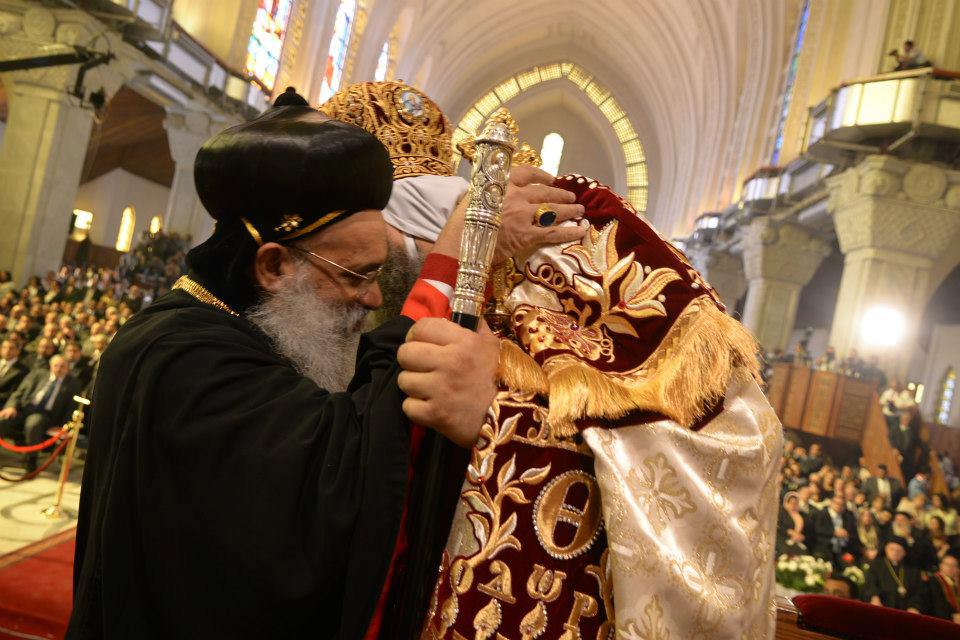
Consecration of the Coptic Pope and Ethiopian Patriarch
Catholicos Baseilous Paulose II of the East took part in the consecration events of Pope Tawadros II of Alexandria (2012) and Patriarch Abune Mathias of Ethiopia (2013). Catholicos Baseilous Paulose II was the chief guest for the consecration of the Ethiopian Patriarch.
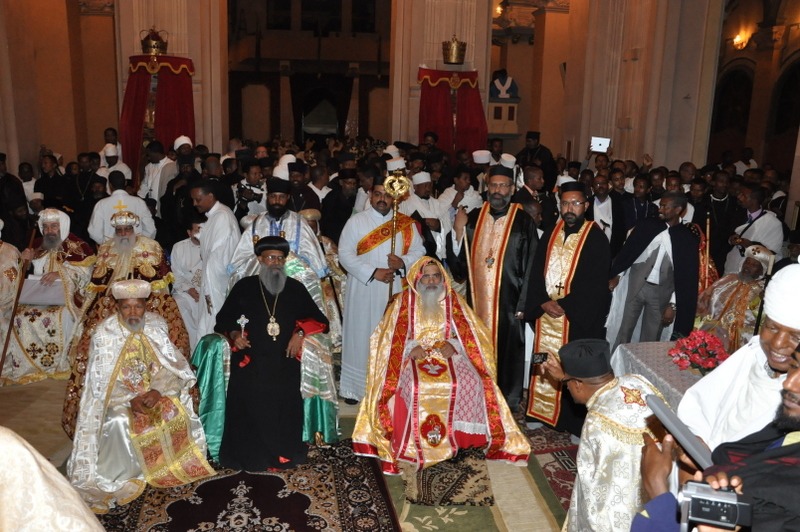

The Yerevan and Cilicia Events
In 2015, Catholicos Baseilous Paulose II of the East and the delegation from Malankara Church took part in the 100th-anniversary events of the Armenian genocide. Catholicos Baselios Paulose II and Patriarch Ignatius Aphrem II had their historic brotherly encounter in Yerevan.
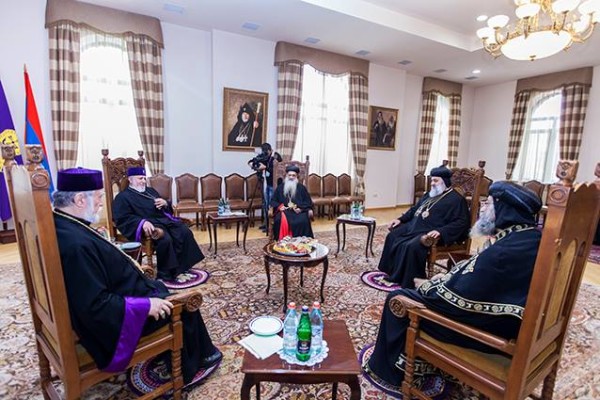
Oriental Primates Meeting in Yerevan
The heads of the four Oriental Orthodox Churches (Coptic, Syriac, Armenian and Indian-Malankara) met at the Mother See in Yerevan as part of the 100th anniversary of the Armenian Genocide. Patriarch of Ethiopia and representatives from the Eretrian Church was absent for the occasion.
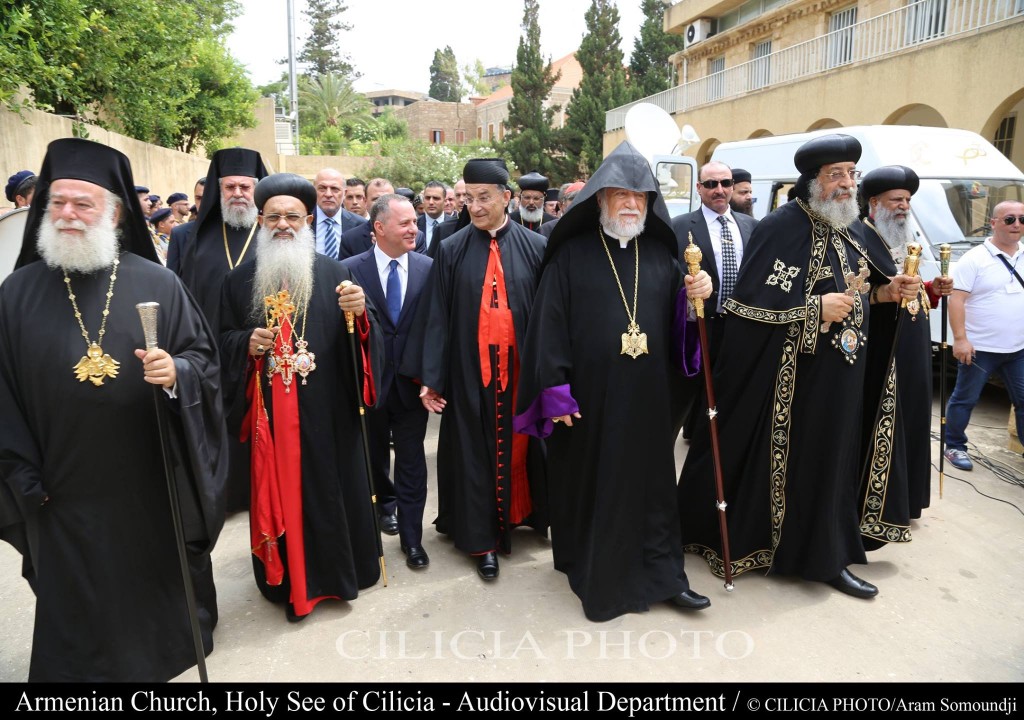
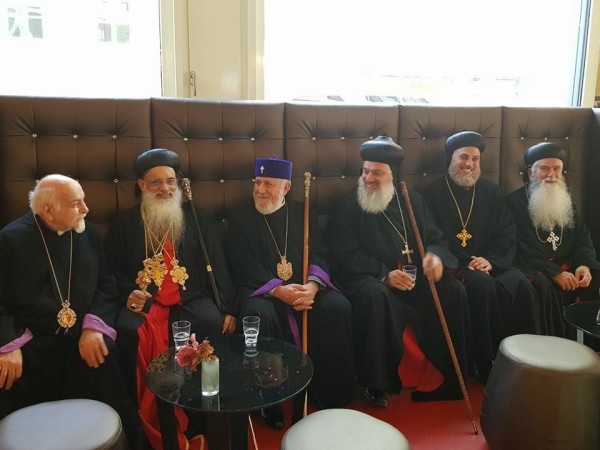
Oriental Orthodox Primates in Germany
In 2017, the Primates of the Oriental Orthodox Churches (Coptic, Syriac, Armenian and Indian-Malankara) took part in the 100th Anniversary of Christian reformation in Europe and participated in the international conference titled ‘Middle East Christians’.
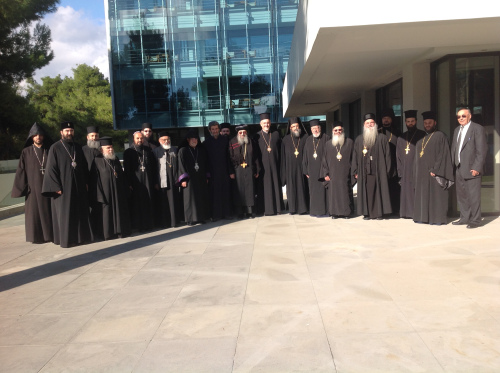
Pan-Orthodox Dialogue and the Malankara Church
The Malankara Church is a full member of the Joint Commission for the Dialogue between Eastern Orthodox & Oriental Orthodox Churches. The last meeting was held in 2014 in Thessaloniki. Fr. Dr. K M George represents the Malankara Church.
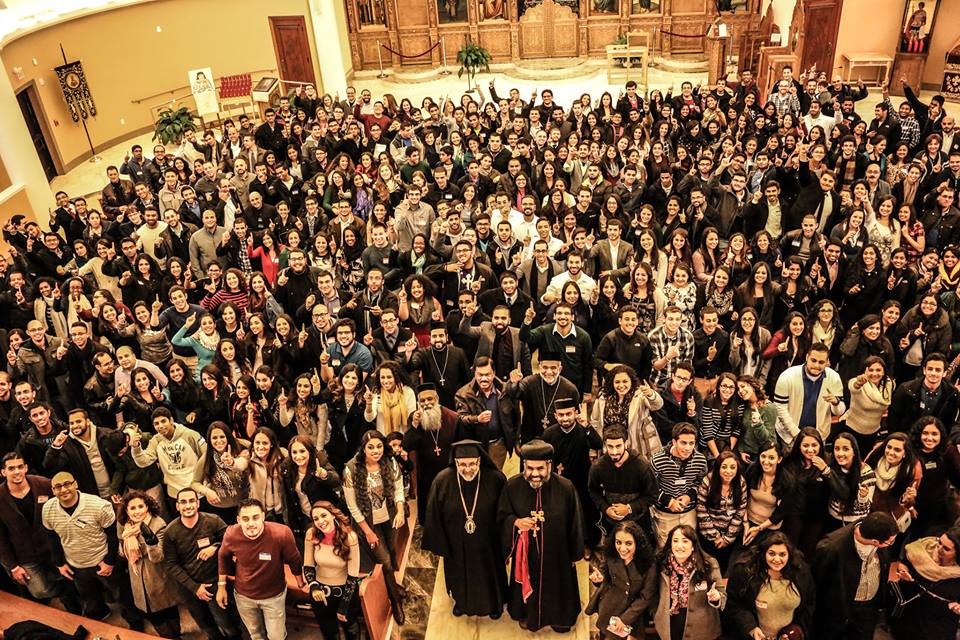
The One Conference
The One conference began with an Indian Orthodox deacon being invited to a Coptic Orthodox Church to lead a youth bible meeting. It is a regional Pan-Orthodox conference based in the US and it aims at bringing Eastern and Oriental Orthodox youth on a common platform. The annual gathering of the conference is attended by Easter and Oriental Orthodox Prelates and faithful.
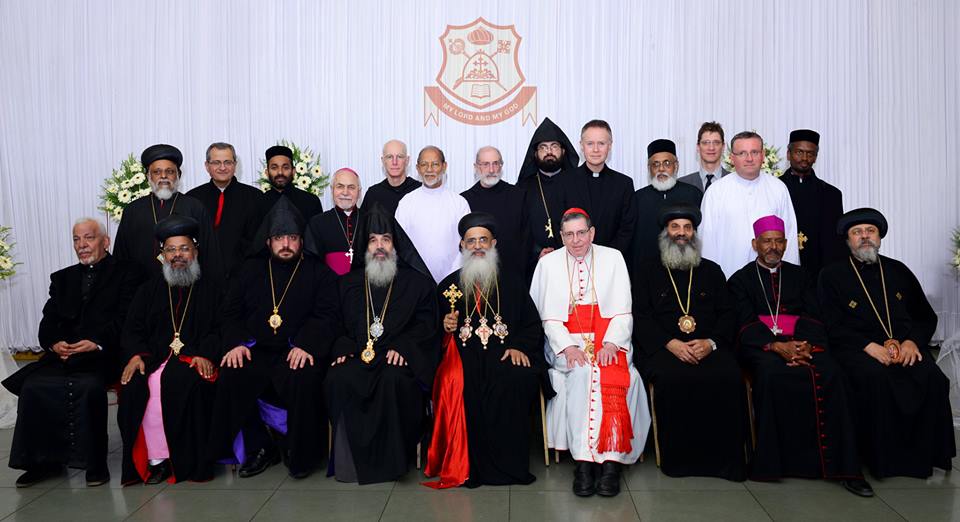
Oriental Orthodox-Roman Catholic Dialogue
The Malankara Church is a full member of the Oriental Orthodox-Roman Catholic Dialogue. The dialogue is held every year.
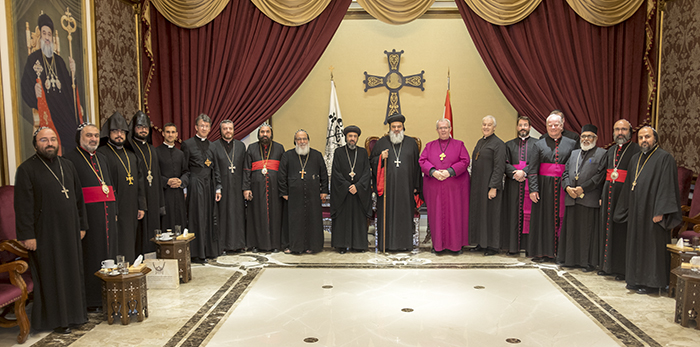
Oriental Orthodox-Anglican Church Dialogue
The Malankara Church is also a full member of the Anglican-Oriental Orthodox Commission. Fr. Dr. K M George represents the Malankara Church. The last Communiqué was published in 2018.
The Malankara Church and Ecumenical Movements
The Malankara Church is an active member of WCC, NCCI, global Christian forum, and various other ecumenical bodies.
Theological Contributions
Great theologians of Malankara Church namely (Gregory of the East), Fr. Dr. V C Samuel has made extensive contributions in the field of theology, ecclesiology, ecumenism and Church unity. Fr. Dr. V C Samuel, Paulose Mar Gregorious were instrumental in organizing the Addis Ababa Conference. At present, the Malankara Church is blessed with a bunch of theologians like Fr. Dr. K M George, Fr. Dr. Jacob Kurien, Chorbishop Mathew Vaidhyan, Fr. Dr. Baby Varghese, Fr. Dr. Jossi Jacob, Fr. Abraham Thomas, etc.
Who Decides for the Oriental Orthodox Communion
One Church or a group of Churches cannot decide for the entire Oriental Orthodox communion. Any decisions regarding the communion shall only be taken in a Pan-Oriental Orthodox Synod. As of now, there is no Pan-Oriental Orthodox Synod in existence. What we have is the Council of Oriental Orthodox Churches in the UK and Ireland (COOC, which is almost defunct), the Standing Conference of Oriental Orthodox Churches in America (SCOOCH) and the Oriental Orthodox Church Council in the Middle East. These are regional councils and they cannot decide for the entire OO communion.
The canonicity of the Malankara Church is not a point of dispute for any Church, except for some of the Patriarchal Jacobite faction in India. The mutual ‘excommunications’ between the Syriac and Malankara Church has not affected their status within the Oriental Orthodox Communion.
For example, the Russian Orthodox Church broke communion with the Ecumenical Patriarchate over the problems in Ukraine. However, both Churches remain as an integral part of the Eastern Orthodox communion. There was a breach of communion between the Romanian and Jerusalem Patriarchate over the issues in Jericho (the communion was later restored). Both Churches remained as a part of the Eastern Orthodox communion even during the breach of communion. A solution for the mutual excommunications between two local Churches is handled by their respective synods. However, finding an appropriate solution through a Pan-Orthodox council is highly recommended.
Decisions by Conciliarity and Not by Supremacy
The problems and schisms between local Churches (over jurisdiction and other aspects) may happen and these may result in the breach of communion. However, it is not a reason for the conflicting Churches to be removed from their common communion. None of the Primates can unilaterally decide on the entry and exit of a local Church from the common communion. None of the local Churches are allowed to interfere in the internal affairs of her sister Church, unless invited. Only a joint conciliar Pan-Orthodox council can decide the fate of a Church or the common communion, only if the situation demands.
The ‘Status’ of the Malankara Church and the Oriental Orthodox Communion
It is clear that the Malankara Church is an integral part of the ancient Oriental Orthodox communion. The ancient Malankara Church is fully accepted and respected as a full member Church of the ancient Oriental Orthodox communion by the Eastern Orthodox Churches, WCC, the Roman Catholic Church, the Anglican Church, the Old Catholic Churches, various Protestant bodies and rest of the world. The Malankara Church cooperates and engages regularly with sister Oriental Orthodox Churches, Eastern Orthodox Churches, and ecumenical bodies. The value and worth of the Malankara Church do not depend upon the ongoing local conflict with the Jacobite Patriarchal faction. Her antiquity, her origin, her tradition, and her contribution to the world remains priceless.

References:
Strickert, F. (2019). The Armenian Church Celebrates Its 1,700-Year Anniversary. [online] WRMEA. Available at: https://www.wrmea.org/001-july/the-armenian-church-celebrates-its-1700-year-anniversary.html [Accessed 1 Oct. 2019].
Oikoumene.org. (2019). Oriental Orthodox Churches — World Council of Churches. [online] Available at: https://www.oikoumene.org/en/church-families/orthodox-churches-oriental/oriental-orthodox-churches [Accessed 1 Oct. 2019].
Oikoumene.org. (2019). Malankara Orthodox Syrian Church — World Council of Churches. [online] Available at: https://www.oikoumene.org/en/member-churches/malankara-orthodox-syrian-church [Accessed 1 Oct. 2019].
Orthodox Unity (Orthodox Joint Commission). (2019). Joint Commission for the Dialogue between Eastern Orthodox & Oriental Orthodox Churches Revamped. [online] Available at: https://orthodoxjointcommission.wordpress.com/2014/12/02/joint-commission-for-the-dialogue-between-eastern-orthodox-oriental-orthodox-churches-revamped/ [Accessed 3 Oct. 2019].
Ethiopianorthodox.org. (2019). The Ethiopian Orthodox Tewahedo Church. [online] Available at: https://www.ethiopianorthodox.org/english/ethiopian/01addisababaconf.html [Accessed 3 Oct. 2019].
Ethiopianorthodox.org. (2019). 1965 Addis Ababa Conference. [online] Available at: https://www.ethiopianorthodox.org/gallery/todaysphoto/1965addisababaconference/index.htm [Accessed 3 Oct. 2019].
Office, A. (2019). Anglican Communion: Oriental Orthodox. [online] Anglican Communion Website. Available at: https://www.anglicancommunion.org/ecumenism/ecumenical-dialogues/oriental-orthodox.aspx [Accessed 1 Oct. 2019].
Abuneantonios.com. (2019). Restore Patriarch Antonios. [online] Available at: http://www.abuneantonios.com/articles/02-biography.php [Accessed 3 Oct. 2019].
Oikoumene.org. (2019). Coptic Pope and Oriental Patriarchs on historic visit in Germany — World Council of Churches. [online] Available at: https://www.oikoumene.org/en/press-centre/news/coptic-pope-and-oriental-patriarchs-on-historic-visit-in-germany [Accessed 3 Oct. 2019].

